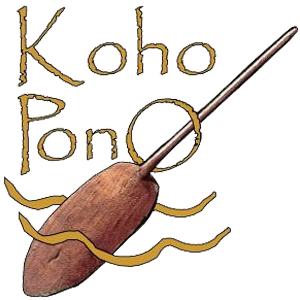Innovation for Writers Who Don’t Fit the Machine (Part 2)
Category : Authors Dayna Says Fiction Storytellers Writers
At the heart of this series is this statement: We believe that innovation for writers can help storytellers find/refine their voices and connect to their audiences AND produce a reasonable ROI for all concerned.
In Part 1 of this series, I said that we at Koho Pono are currently working with an author that doesn’t write cookie-cutter saleable stories for today’s marketplace – she doesn’t fit in today’s big publishing machine. Regardless, we here at Koho Pono want to help produce Jaki Harvell’s stories and present them to her right-sized audience because we believe that her tales are important to the human community.
In Part 2 (and final part of this series), I more deeply explore other aspects of ‘fitting in’.
From the author’s point of view (POV) the bottom line is: artists have a drive to express what is inside them. Authors have a passionate urge to give birth to an internal tale, release that creation to live its own life, and connect their creation to its proper audience. When all of this happens, a current flow through the audiences and artists and through the work; it’s a wave of connection. Every thing fits.
Although many people have one story to tell, once that one story is told, the compulsion is gone and they go on with the rest of their life. This is valuable and worthwhile. However, what sets a writer apart is
- a writer thinks in terms of making an impact through telling stories
- once a writer get a taste of connecting their work to a hungry audience, they want to go through the process again and again
- After writers get this first taste of ‘connection’, they start thinking about how they can afford to do this full time
- This ‘taste of connection’ may happen at an early age or late in life
- This is the point a smart writer begins to address the business aspects of their passion and craft
- a writer’s passion helps them through the creation process
- a writer wants to constantly improve their skills and develop their craft
So it all starts with an urge, recognition that this story must be imparted. It is the author’s responsibility to carefully examine and monitor their urge because: (1). In the highest aspect, passion can create work of timeless import and catalytic effect, and (2). In the lowest aspect, the same passionate drive may result in work that is self-indulgent, unexamined, and poorly crafted, (3). In between these two extremes is a whole gradation of skill, talent, vigilance, and honesty.
People with one-story-to-tell often do not care at what end of the gradation they are working. Even if they care, sometimes they do not have the refinement to recognize where along the gradation they are working. A writer is willing to constantly improve their skill, refine their talents, apply more vigilance, and be brutally honest with themselves.
Jaki Harvell (the writer who inspired this series) needs to write about great, gritty, girl heroes. It’s her nut, her common thread, her constant devotion. She is not the type of writer who gets satisfaction by writing only to appease popular demand. Instead, she must create the stories that are burning inside her. She has something specific to say. Rainer Maria Rilke says it beautifully:
I believe in all that has never yet been spoken.I want to free what waits within me
so that what no one has dared to wish for may for once spring clear
without my contriving. If this is arrogant, God, forgive me,
but this is what I need to say.
May what I do flow from me like a river,
no forcing and no holding back,
the way it is with children. Then in these swelling and ebbing currents,
these deepening tides moving out, returning,
I will sing you as no one ever has, streaming through widening channels
into the open sea.
Of course, we all hope that her works are runaway hits, but in the end, it is our job as publishers to make sure her stories reach their right audiences and produce a reasonable ROI for all concerned. It is her job and our job to improve our skills, refine our talents, apply more vigilance, and be brutally honest with ourselves.
In our experience, some in the publishing industry have gotten so caught up in being the gatekeepers of quality, they focus their attention on defending the current processes and their guiding principles have more to do with volume than quality. Today’s publishing professionals seem to have created an oppositional relationship with other aspects of the industry including: distribution, printers, employees, new authors, customers, booksellers, etc. Optimizing profit from every interaction has become more important than building partnerships/relationships. Short term benefit is more important than long term satisfaction.
Noted American author/professor/philosopher, Sam Keen, says
“There is no easy formula for determining right and wrong livelihood, but it is essential to keep the question alive. To return the sense of dignity and honor to manhood, we have to stop pretending that we can make a living at something that is trivial or destructive and still have sense of legitimate self-worth. A society in which vocation and job are separated for most people gradually creates an economy that is often devoid of spirit, one that frequently fills our pocketbooks at the cost of emptying our souls.“This quote addresses why we at Koho Pono are dedicated to telling important stories, helping authors find their voice and their audiences, and find innovative ways to make our processes economical.

